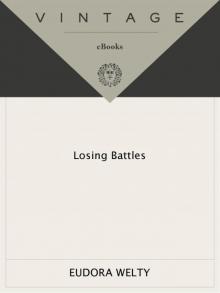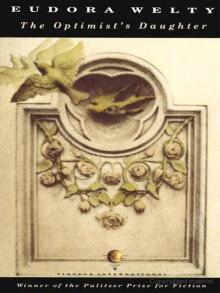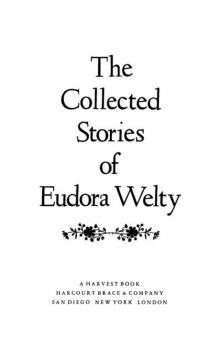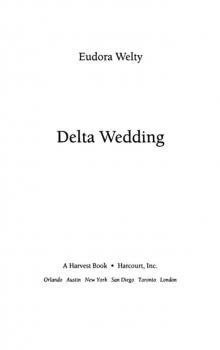- Home
- Eudora Welty
On Writing
On Writing Read online
2002 Modern Library Edition
Introduction copyright © 2002 by Richard Bausch
Biographical note copyright © 1992 by Random House, Inc.
Copyright © 1942, 1943, 1944, 1949, 1955, 1956, 1957, 1965, 1966,
1971, 1973, 1974, 1975, 1977, 1978 by Eudora Welty.
Copyright Renewed © 1970, 1971, 1972, 1977,
1983 by Eudora Welty.
All rights reserved under International and Pan-American Copyright Conventions. Published in the United States by Modern Library, a division of Random House, Inc., New York, and simultaneously in Canada by Random House of Canada Limited, Toronto.
MODERN LIBRARY and the TORCHBEARER Design are registered trademarks of Random House, Inc.
The essays in this work were originally published in the following journals: The Atlantic Monthly, Critical Inquiry, South Atlantic Quarterly, Southern Review, and The Virginia Quarterly Review. They were subsequently published in book form in The Eye of the Story (Random House, Inc., 1978).
LIBRARY OF CONGRESS CATALOGING-IN-PUBLICATION DATA
Welty, Eudora, 1909–
On writing / Eudora Welty.
p. cm.
eISBN: 978-0-307-78677-7
1. Fiction—Authorship. 2. Fiction—Technique. I. Title.
PN3355 .W375 2002
808.3—dc21
2002022340
Modern Library website address: www.modernlibrary.com
v3.1
EUDORA WELTY
Eudora Welty was born in Jackson, Mississippi, on April 13, 1909. Of her tranquil childhood she wrote: “I am a writer who came of a sheltered life. A sheltered life can be a daring life as well. For all serious daring starts from within.” She studied at Mississippi State College for Women, the University of Wisconsin, and Columbia University, with the intention of pursuing a career in advertising, an idea abandoned in favor of writing after her stories began to be published regularly in the mid-1930s. The appearance of her work in The New Yorker and The Atlantic Monthly established a reputation that was furthered by the publication of her first story collection, A Curtain of Green, in 1941. After her college days she returned to Jackson, where she would live permanently.
Further stories were collected in The Wide Net (1943), The Golden Apples (1949), The Bride of the Innisfallen (1955), and a book of stories for children, The Shoe Bird (1964). Another collection, Moon Lake, appeared in 1980, as did The Collected Stories. The novella The Robber Bridegroom was published in 1942 and was followed by other longer works of fiction: Delta Wedding (1946), The Ponder Heart (1954), and, after a hiatus of several years, Losing Battles (1970), which focused new attention on her work. Her next book, The Optimist’s Daughter (1972), won the Pulitzer Prize. A collection of essays, The Eye of the Story (1978), was followed by the memoir One Writer’s Beginnings, which in 1984 became an unexpected best-seller.
In addition to her work as a writer, Welty published a book of photographs, One Time, One Place (1971), recording her visual impressions of Mississippi in the early thirties. Two of her books, The Ponder Heart and The Robber Bridegroom, have been adapted for the stage.
Eudora Welty died on July 23, 2001, at the age of ninety-two.
CONTENTS
Cover
Title Page
Copyright
Biographical Note
Introduction by Richard Bausch
Dedication
ON WRITING
LOOKING AT SHORT STORIES
WRITING AND ANALYZING A STORY
PLACE IN FICTION
WORDS INTO FICTION
MUST THE NOVELIST CRUSADE?
“IS PHOENIX JACKSON’S GRANDSON REALLY DEAD?”
SOME NOTES ON TIME IN FICTION
INTRODUCTION
Richard Bausch
One evening not so long ago, I was present at a gathering in the Episcopal Church across from the Folger Shakespeare Library in Washington, D.C. It was late October, and there was a crispness in the air, the trees lining the avenues were all blazing with color. I was then a member of the PEN/Faulkner Board, and though the occasion was decidedly secular rather than religious, it was certainly spiritual: Miss Eudora Welty, then eighty-six years old, was going to read one of her stories.
Earlier, at the dinner which always precedes such events, she had told how a town librarian once approached her, wanting her to come speak. “What we’d like you to do,” the librarian said, “is come tell us one of your stories in your own words.” Miss Welty’s eyes sparkled, relating this story, and there was no dismissal at all in her voice, no sense of the librarian as someone at whose expense the story was told. It was as if this were a tale of the kind of sweet innocence that a child might inspire, and even that isn’t adequate as a depiction of the attitude: for Miss Welty was in fact delighted by it. One would almost say gladdened. There was something in her spirit that was always outward-aimed, and glad of human foible, and it is hard to express exactly how it shone forth: one simply knew it when one was in its presence.
At the Fellowship of Southern Writers Luncheon back in 1991, I plopped down next to her and stuck a fork into the chicken cordon-bleu that had been placed before me, and then realized that someone was saying a prayer for the gathering and that the whole audience, including people whom I knew quite well to be pagan, had heads bowed, hands folded. I couldn’t get the fork out of the chicken, and so I sat back and put my head down, and waited. When the prayer was finished, Miss Eudora leaned over to me and murmured, “I believe it’s already killed.” I still think about the look of mischievous gladness in her eyes and I smile.
And now, years later, she was going to read her story “A Wide Net” to this large gathering, a packed church, people standing all along the walls and in back, and seated on the floor in the central aisle and across the front of the elevation that led to the altar behind her. There was a small table, with a book and a microphone on it, and one glass of water. She was so frail that she had to be helped across to the chair. She took her place, and the microphone was adjusted at the angle necessary to broadcast her thin, quiet voice, with the lilt of Mississippi in it, and its kindly tremor of humor and grace, and, well, goodness. Nothing less. She got comfortable in the chair, arranged herself, looked out at the throng, smiling, nodded slightly, waiting for the applause to die down. She opened the book, adjusted her glasses, looked at the page and waited a second, then began to read. The silence, as she spoke, and went on, was profound. No one coughed or cleared his throat; no one shifted weight or moved papers or fumbled with a purse—for that might have meant missing a word or phrase. The voice was so small, scarcely more than a murmur. When there were laughs—and she knew precisely where they all were, and took pleasure in them without making a show of it—she waited, patiently, until the silence returned, and then continued, in the same soft, warm tones, the voice of an intimate friend, telling you secrets you didn’t know you knew.
Here, in the Modern Library, is this wonderful book, filled with all her best virtues as a writer and as a person. Rich with her great wisdom not only about the art she practiced so well all the years, but about life, and the intelligent living of it. Any student of literature would do well to study On Writing, because this book contains the words of a great practitioner of the art of fiction, spelling out the matters of her craft. But there is plenty for anyone interested in how to live, too. Here she is discussing place in fiction:
There may come to be new places in our lives that are second spiritual homes—closer to us in some ways, perhaps, than our original homes. But the home tie is the blood tie.
That applies to her subject, but it also contains wisdom of its own, separate from the esthetic she’s describing, or extending from it.
So this book on craft is of general interest, it se
ems to me. And even so, I expect that young writers of fiction will be carrying it around with them in the years to come. They ought to be, anyway.
Miss Welty uses her own work and the work of artists she admires from her wide reading to talk about the forms of fiction, and the application of these matters to the life we lead: there is an essay on the writing of stories, and another on analyzing fiction; there’s one about the uses of place in the novel, and there’s another about words themselves in the construction of a fictive world. Each essay contains windows into the mind and soul of Eudora Welty the reader, as well as the writer. Here she is discussing Virginia Woolf, D. H. Lawrence, and Chekhov:
For Virginia Woolf … the senses mattered extremely, as we know; toward sex she was a critic. But the beauty and innovation of her writing are both due to the fact, it seems to this reader, that the imprisonment of life in the word was with her a concern of the intellect as much as it was with the senses. She uses her senses intellectually, while Lawrence, if this is not too easy to say, uses his intellect sensually. While Chekhov patiently builds up character, Lawrence furiously breaks down character.… Chekhov was exorcizing nothing, he simply showed it forth.
But as I have indicated, there is more than literary criticism here. Her essay “Must the Novelist Crusade?,” written at the height of the civil rights crisis of the middle sixties, is fresh and burning with truth. In that essay, she confronts the evil of her time with toughness and compassion:
I believe there must be such a thing as sentimental hate.… I think the worst of it is that we are getting stuck in it. We are like trapped flies with our feet not in honey but in venom. It’s not love that is the gluey emotion; it’s hate. As far as writing goes, which is as far as living goes, this is a devastating emotion. It could kill us.
But she also addresses the notion that it is the novelist’s duty to be a crusader:
… the zeal to reform, which quite properly inspires the editorial, has never done fiction much good. The exception occurs when it can rise to the intensity of satire, where it finds a better home in the poem or the drama. Large helpings of naïveté and self-esteem, which serve to refresh the crusader, only encumber the novelist. How unfair it is that when a novel is to be written, it is never enough to have our hearts in the right place! But good will all by itself can no more get a good novel written than it can paint in watercolor or sing Mozart.
The one thing most evident in all her criticism is good sense.
And that is what is so frequently lacking in the criticism of our day, the era that has been termed postmodern, and that I have elsewhere called post-sensical. It is an overly politicized era, in which the novelist is often faced with an unspoken but very clear expectation that he indeed crusade; that one must be about the business of engineering better human beings, and correcting social ills, or redressing old social grievances. Fictive art is seen in terms of its political utility, its quotient of moral outrage. Everything is politics, the professors tell us, and the writer is morally bound to expose this or that injustice. And in keeping with this mentality, writers who have gone before us are lifted or devalued by how well they can withstand the heresy-hunting party line: for instance, Joseph Conrad was an imperialist, according to this feature of the critical climate, and Faulkner was a racist.
Well, this little book is all one needs to face into the prevailing silliness. And if I may borrow the sense of a phrase from her old friend and peer William Maxwell, Eudora Welty’s heart is like a lovely cottage with all the windows and doors wide open. She reminds us, wonderfully, that “Beauty is not a means, not a way of furthering a thing in the world. It is a result; it belongs to ordering, to form, to aftereffect.”
That October evening, while she read “A Wide Net” to all those people, my mind wandered just for an instant: I had the thought that this is what true civilization really is; not the cities or the monuments or the statecraft or even the politics: but this. This slip of a lady, with barely the physical power to get around on her own unaided, holding a thousand others in thrall, threaded together on the silence by the force and power of her art, her being, her imagining.
—
RICHARD BAUSCH is the author of fourteen volumes of fiction, including Selected Stories (a Modern Library hardcover), and, most recently, Hello to the Cannibals.
To Kenneth Millar
LOOKING AT SHORT STORIES
Looking at short stories as readers and writers together should be a companionable thing. And why not? Stories in their bardic and fairy-tale beginnings were told, the listeners—and judgers—all in a circle.
E. M. Forster, in Aspects of the Novel, described the great age of the narrative:
Neanderthal man listened to stories, if one may judge by the shape of his skull. The primitive audience was an audience of shock-heads, gaping around the campfire, fatigued with contending against the mammoth or woolly-rhinoceros, and only kept awake by suspense. What would happen next? The novelist droned on, and as soon as the audience guessed what happened next, they either fell asleep or killed him.
That suspense is still with us, but it seems to me that now it exists as something shared. Reader and writer make it a double experience. It is part of the great thing in which they share most—pleasure. And it is certainly part of the strong natural curiosity which readers feel to varying degree and which writers feel to the most compelling degree as to how any one story ever gets told. The only way a writer can satisfy his own curiosity is to write it. And how different this already makes it from telling it! Suspense, pleasure, curiosity, all are bound up in the making of the written story.
Forster went on to distinguish between what Neanderthal man told, the narrative thread, and what the written story has made into an art, the plot. “The king died and then the queen died” is the narrative thread; “The king died and then the queen died of grief” is a plot. We have all come from asking What next? to asking Why? The word “which,” of course, opened up everything, or as much of everything as the writer is able to handle.
To take a story:
Jack Potter, the town marshal of Yellow Sky, has gone to San Anton’ and got married and is bringing his bride back in a Pullman as a dazzling surprise for his hometown. And while the train is on its way, back in Yellow Sky Scratchy Wilson gets drunk and turns loose with both hands. Everybody runs to cover: he has come to shoot up the town. “And his boots had red tops with gilded imprints, of the kind beloved in winter by little sledding boys on the hillsides of New England … The only sounds were his terrible invitations … He comfortably fusilladed the windows of his most intimate friend. The man was playing with the town; it was a toy for him.” The train comes in, Scratchy and the marshal are face to face, and Potter says, “I ain’t got a gun on me, Scratchy,” and takes only a minute to make up his mind to be shot on his wedding day. “If you ain’t got a gun, why ain’t you got a gun?” “I ain’t got a gun because I’ve just come from San Anton’ with my wife. I’m married.” “Married? Married?… Is this the lady?” “Yes; this is the lady.” “ ‘Well,’ said Wilson at last, slowly, I s’pose it’s all off now.’ He was not a student of chivalry; it was merely that in the presence of this condition he was a simple child of the earlier plains.” He picked up his starboard revolver, and, placing both weapons in their holsters, he went away.
Two predicaments meet here, in Stephen Crane’s “The Bride Comes to Yellow Sky.” You might say they are magnetized toward each other—and collide. One is vanquished with neatness and absurdity; as he goes away, Scratchy’s “feet made funnel-shaped tracks in the heavy sand.” Here are the plainest equivalents of comedy, two situations in a construction simple as a seesaw, and not without a seesaw’s kind of pleasure in reading; like Scratchy Wilson, Crane is playing with us here.
In Katherine Mansfield’s “Miss Brill,” there is only one character and a single situation; Miss Brill’s action consists nearly altogether in sitting down—she goes out to sit in the park, returns to sit on her bed. There
is no collision. Rather, the forces meeting in the public gardens have, at the story’s end, passed through each other and come out at the other side; there has been not a collision, but a change—something more significant. This is because, although there is one small situation going on, a large, complex one is implied. Life itself corresponds to the part of Scratchy Wilson, so to speak. Not violent life, merely life in a park on Sunday afternoon in Paris. All that it usually does for Miss Brill is promenade, yet, life being life, it does finally threaten. How much more deadly to such a lady than a flourished pistol is a remark overheard about herself. Reality comes to leer at her from a pleasant place, and she has not come prepared to bear it. And so she, who in her innocence could spare even pity for this world—pity, the spectator’s emotion—is defeated. A word is spoken and the blow falls and Miss Brill retires, ridiculously easy to mow down, as the man with the pistols was easy to stare down in “Yellow Sky” for comedy’s sake. But Miss Brill was from the first defenseless and on the losing side; her defeat is the deeper for it and one feels sure it is for always. So this story, instead of being a simple situation, is an impression of a situation, and tells more for being so.
Looking at these two stories by way of their plots in skeleton, we can’t help but notice something: their plots are not unlike. “The Bride Comes to Yellow Sky” is its more unpretentious form, “Miss Brill” shows an interesting variation. It is a plot with two sides, or two halves, or two opposites, or two states of mind or feeling side by side; even one such in repeat would be a form of this. The plot is, of course, life versus death, which includes nearly every story in the world.
It could be said equally well that most stories (and novels too) have plots of the errand of search. An idea this pervasive simply pervades life, and the generality that could include in one quick list “The Bear,” “The Jolly Corner,” “The Short Happy Life of Francis Macomber” and “Araby” doesn’t tell us really anything.

 On Writing
On Writing Losing Battles
Losing Battles The Robber Bridegroom
The Robber Bridegroom The Optimist's Daughter
The Optimist's Daughter The Collected Stories of Eudora Welty
The Collected Stories of Eudora Welty Delta Wedding
Delta Wedding The Ponder Heart
The Ponder Heart